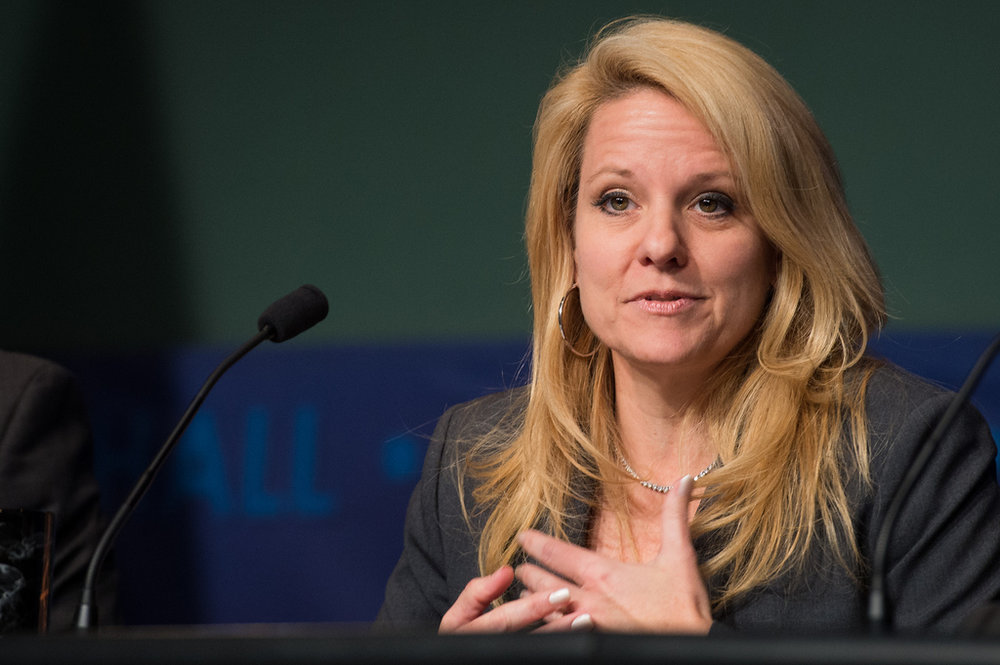The Women 2.0 conference speaker talks about growing SpaceX from a startup with a handful of employees to a company with out-of-this-world ambitions.
By Jessica Stillman (Editor, Women 2.0)
What does it take to go from tiny to huge? And how can a company that make that journey retain the best aspects of startup culture? If anyone should have insight into these questions it’s Gwynne Shotwell, President and COO of SpaceX (as well as a keynote speaker at our upcoming conference), who joined Elon Musk’s aerospace startup as employee number seven and now helps to manage a team of around 3,000.
We asked Shotwell about the company’s journey from wild idea to real-life rocket maker, as well as her personal journey from technologist to manager (and even got a bold prediction about the future of human space exploration thrown in!)
You’ve seen SpaceX go from tiny to quite big. What challenges were you most concerned about as the company grew and how did you tackle them?
Maintaining the culture of efficiency and immediacy, as well as ensuring a connection to the goals was a concern. Internal communication becomes key to alleviating this. I meet with groups of SpaceXers in very informal settings (fireside chats) to make sure the team knows what we need to do and understands the issues we face. I always encourage employees to feel free to raise any issues that prevent them from getting good work done. I also have an anonymous suggestion box that goes directly to my email—it helps me stay on top of issues, and also discover areas of opportunity throughout the company.
How about your own role — you came from a technical background, so what new skills have you needed to learn to lead SpaceX well as it grew?
An important skill for all SpaceXers is the ability to accept critical feedback. This is key to anyone’s growth and becoming better at what they do. Feedback is a gem that should be accepted gladly, but unless you are used to it or have a culture of feedback, it can be quite difficult to accept.
Thanks to the scale of what it’s building, SpaceX is different from your typical startup, but what are the ways your company is still similar?
SpaceX is a flat organization. Anyone gets to talk to anyone and the best idea wins–even if it comes from an intern. And like many startups, we favor results over process and do our best to minimize or eliminate any red tape.
What would you say to a young person interested in getting involved in the aerospace industry — is this a good field to join and any tips on breaking in or preparing yourself to succeed?
The key is to join an industry that you have a passion for. If you love cars, then automotive is where you should end up. If you like rockets (who doesn’t like rockets?) then aerospace is great. My advice is always to be the most knowledgeable person in the room, but don’t act like it… 🙂 You can’t always be the smartest person in the room, but if you know your stuff you can always be a strong contributor.
My parents had the moon landing. What similarly impressive space accomplishment will my generation probably get to witness?
People living on another planet (Mars). Definitely.
Join us at the conference to hear more from Gwynne.

Image credit: NASA HQ PHOTO via Flickr.

